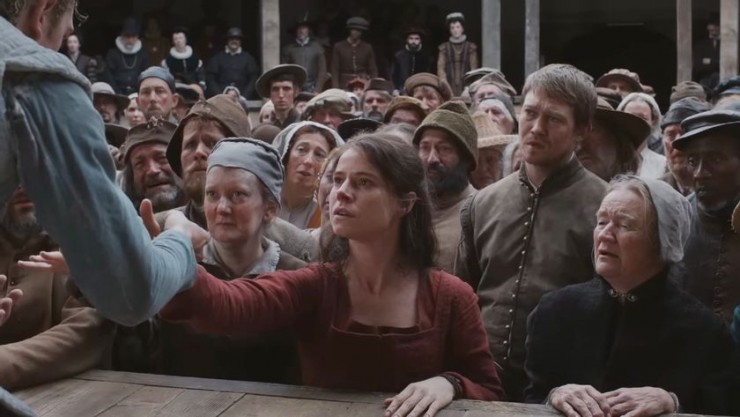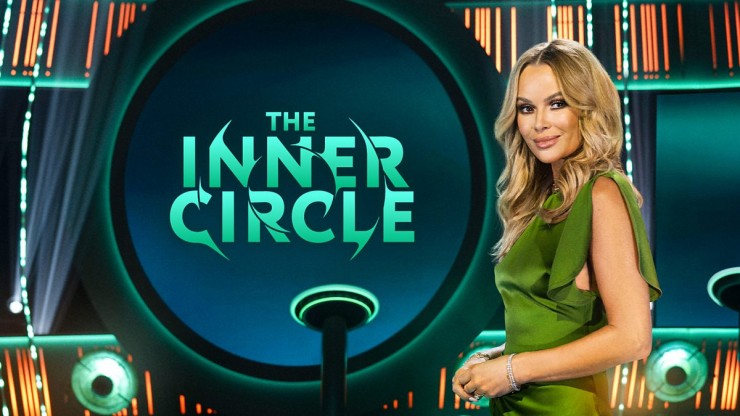In our second instalment of Talented TM-ers this week, we catch up with James Parris, Producer/Director of 'Gold Rush: Our Race to Olympic Glory'
Give us an insight into the making of the show?
James Parris: Gold Rush was fairly new ground for me. I’ve only been working in the industry for three or four years so I’d never worked on a project with a sports focus before. I was brought on board, I think, because of my background in political documentaries, and so adding the sports element felt like an exciting challenge.
As an archive and interview-led series, the cast of contributors you pull together is absolutely crucial. When I started on Gold Rush I had just finished work on a project where lots and lots of crucial contributors did not want to be involved. I went into this series expecting the same thing, but it proved to be the opposite. Because the story is triumphant (mostly) and represents the high-point of many of our interviewees’ careers, the vast majority were keen to be involved – which made my job significantly more relaxing. Working alongside a dedicated sports booker (Zak Oomer) to make those first contacts with agents was invaluable on that side of things too.
The pandemic posed a number of problems. There were long periods at the start of this year when interviewees would not agree to in-person filming (with good reason!). But looking back now there were upsides too – many venues which would normally be unavailable for filming, or bursting with people/noise suddenly became usable locations – shops, gyms, boxing clubs, pools all freed up in a way that wouldn’t be possible in ‘normal’ circumstances.
The fact that the films were going to include lots of Olympic archive was a challenge, given the difficulties of licensing the material, and in such quantities. We worked with some great archive producers, led by the brilliant Phil Clark, who faced the mountainous challenge. It proved vital to have someone on the ground early, establishing the ins and outs of the rights/licensing situation.
The process of making Gold Rush confirmed something I’ve found on previous archive and interview-led projects, which is the importance of using research conversations to build a network of people who can help the project along. Getting a diverse group of people on board with the idea of the series, and convinced that we were treating the story with the integrity and complexity it deserves, opened so many doors further down the line. On this project more than any other, this informal constellation of ‘friends out there’ was invaluable.
The best thing about the whole project was being able to get out on the road and film interviews the length and breadth of the country during a time I’d otherwise have been locked down at home. Four hours down a motorway in the pouring rain this February could feel like a slog – but then I’d pinch myself and remember how lucky I was to be working and mobile during a lockdown. I’m incredibly grateful for that.
What did you learn?
James: I think on every project I re-learn the value of perseverance. It’s an ultramarathon, not a sprint. Take it easy when you can, because you can’t control when you have to take it hard.
And I learnt how important it is to roll with the punches– lots seemed to be going wrong on some days because of the pandemic (last minute location changes, contributors delaying, sudden logistical hurdles etc etc), and I’m now learning to live in the moment when that happens.
What was it like to work for the channel/production company that hired you?
Blast! were wonderful – the team was very supportive of me personally as well as the project, and as a company they want to tell ambitious stories with authenticity and flair. Tanya Winston (our exec) was a constant source of energy and asked all the right questions at all the right times.
Making films for BBC1 is always exciting because you know you are reaching a huge and varied audience with a broad interest. It keeps your feet on the ground in terms of how to approach storytelling, and, in practical terms, the letters B B C still carry weight when approaching contributors, institutions, locations etc.
How did you get the job?
James: Two friends saw the job posted on Facebook (I think!) and both suggested I apply. I looked it up, and found it posted on the Talent Manager too. It was the first time I’d applied for a gig without knowing any of the team involved beforehand, and so it felt like a leap in the dark (and a long shot).
I had applied to produce the series, but the project was put off for a year, partly because of the pandemic I think, which gave time to develop the series more fully. So initially I spent three or four weeks writing up detailed breakdowns for each episode, and refining the overall narrative. Then a few months later it was green-lit and I was brought back on board to produce the series. That initial development work meant we could all hit the ground running.
What is your top TV tip?
James: I’ll try to keep this as specific as possible! They are aimed at interview-led filmmaking.
Think very carefully about the approach letter/email you write to potential contributors. It’s probably one of the earliest jobs you’ll have to do, and it’s the first and best opportunity for you to articulate the story, argument, and tone of the project concisely and clearly – you are writing that letter to yourself as much as to them. It sketches the outer edge of everything that will follow.
ALSO on long projects, with many phases, you can feel like there comes a point where the time to do new research (or question old research) has passed. Try to resist that temptation, if you can. Be curious and go down rabbit holes and call up new people and rethink the thrust of your story until as late in the process as possible – however disruptive that can be, it will almost certainly be pushing your story in a richer direction.
FINALLY begin writing a script as early as you can (it’s a great thinking tool), but also discard it as soon as you’ve got sync in the can. The edit is the time to start the film afresh, and not to try to hold on to a paper script you wrote a long time ago. It is not a sacred text – the audience will watch your film, not read your script.
'Gold Rush: Our Race to Olympic Glory', starts BBC1 Monday 5th July, 9pm (available on iPlayer)



